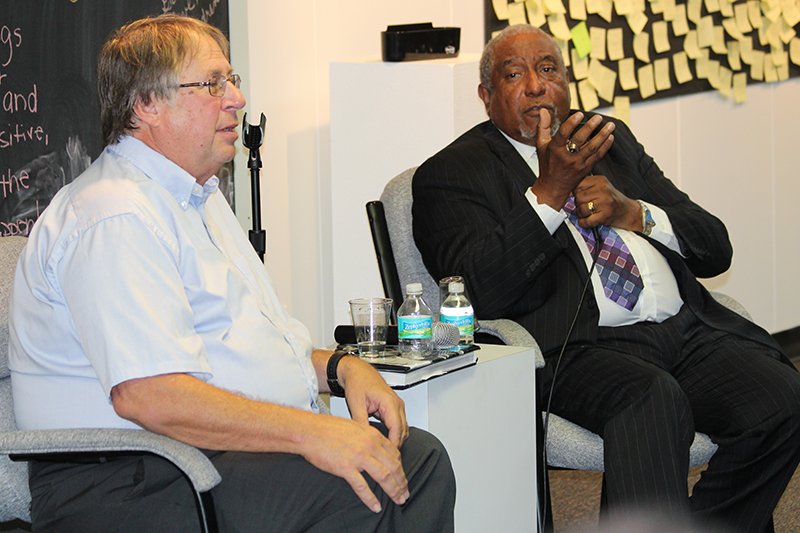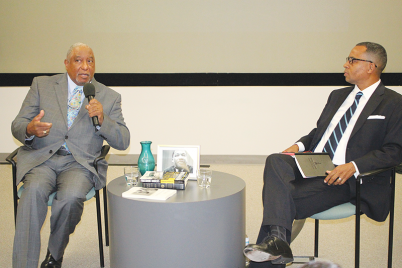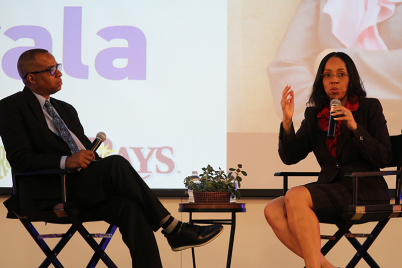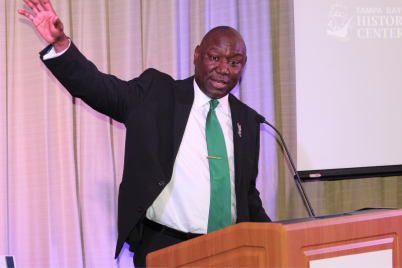BY LAUREN MERI
Neighborhood News Bureau
TAMPA — Dr. Raymond Arsenault and Dr. Bernard LaFayette, Jr. spoke at the Embassy Suites by Hilton Tampa USF to discuss how public figures from the past and present create a more civil and inclusive society.
Arsenault, who recently finished his new book on world-renowned tennis player Arthur Ashe, began the discussion with the experiences he gained from the writing process. During his interviews, Arsenault learned that Ashe, although very passionate about civil rights, was an understanding person and a great listener.
Arsenault discussed how even though Ashe was an African American who had suffered through Jim Crow, he was still able to overcome and break down barriers, including having a day named after him by the mayor of his hometown, Richmond, Va., in 1967.
“Being civil is a part of having a generous spirit. Arthur Ashe certainly had that,” said Arsenault.
When the discussion turned over to LaFayette Jr., one of the original Freedom Riders, his positivity radiated throughout the room. He was humorous and hopeful in his discussion.
LaFayette told stories of growing up and spending most of his time with his grandmother. When he was a young child, around seven years old, he and his grandmother were left behind by a streetcar after they had already paid to get on. This, he explained, was one of his first experiences with segregation, and he told himself that one day when he was older, he would find a way to help abolish the Jim Crow laws.
LaFayette talked about how the Freedom Rider’s nonviolent approach to protesting helped them gain more followers, a strategy he said he learned from Martin Luther King, Jr.
“He understood there was a difference between just breaking the law and civil disobedience. One thing you have to be able to do in civil disobedience, is that you have to respect the law, even if it’s an unjust law,” said LaFayette about Martin Luther King, Jr.
The end of the discussion revolved around current movements, such as #MeToo, Occupy Wall Street and fracking. The two men discussed how communities could stop history from repeating itself. They addressed pointed questions: What have we learned from past movements such as the Freedom Riders and late public figures such as Arthur Ashe and Dr. King that are still relevant today?
Arsenault says it starts with a generous spirit. He and LaFayette both agreed that there will always be a way to create justice without violence and humiliation.
“Having patience and tolerance is hard to do sometimes when the issues are very deep and vague such as climate change, racism, police brutality. Obviously, we are very passionate about those things. How do you not let yourself get in the way of the solution,” asked Arsenault.
Start small, LaFayette said. Change in the larger society begins within smaller communities. It isn’t necessary to be in the public eye to start a movement for change. LaFayette and the rest of the Freedom Riders, along with other civil rights activists such as Dr. King and Arthur Ashe, proved that anger and violence aren’t necessary to get the point across.
Lauren Meri is a student reporter in the Neighborhood News Bureau at the University of South Florida St. Petersburg. Visit nnbnews.com for more info.








